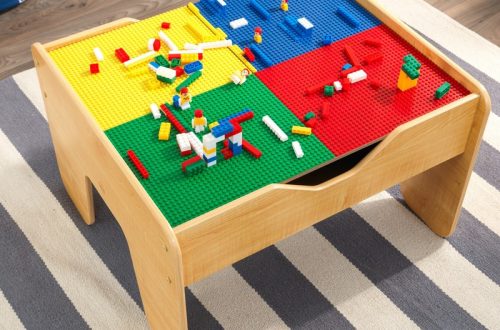I. Intro
A. Importance of Playhouses in Childhood Development
Play is an essential aspect of a child’s development, allowing them to explore, learn, and grow in a safe and nurturing environment. Playhouses, in particular, play a crucial role in fostering creativity, imagination, and social skills. These structures provide children with a dedicated space to engage in imaginative play, where they can create their own worlds, stories, and characters. Playhouses also offer a sense of ownership and independence, giving children a space of their own where they can make decisions, solve problems, and express themselves freely.

B. Introduction to Cabin Play and its Benefits
One type of playhouse that has gained popularity in recent years is the cabin playhouse. Inspired by rustic cabins and cozy cottages, these playhouses offer a unique and enchanting space for children to immerse themselves in imaginative adventures. Cabin playhouses often feature charming designs, with wooden facades, small windows, and even miniature gardens. These playhouses provide a special retreat for children, allowing them to escape the realities of the outside world and enter a world of make-believe.
II. Creating the Perfect Cabin Playhouse
A. Choosing the Right Location and Space
When it comes to building or selecting a cabin playhouse, location is key. The playhouse should be placed in an area that is safe, easily accessible for supervision, and allows for enough space for children to play comfortably. Consider whether you want the playhouse to be indoors or outdoors, as this will determine the materials and design considerations.
B. Design and Construction Considerations
Designing and constructing a cabin playhouse requires careful planning and attention to detail. Consider the size of the playhouse, ensuring it is proportionate to the available space. Choose durable and child-safe materials, such as pressure-treated wood or non-toxic plastic, for construction. Incorporate features like windows, doors, and a cozy interior to enhance the overall experience. Include sturdy furniture, such as a small table and chairs, for children to use during playtime.

C. Incorporating Imaginative Elements
To make the cabin playhouse even more magical, consider incorporating imaginative elements. Add a small garden outside the playhouse, complete with miniature plants and flowers. Hang fairy lights or lanterns to create a warm and cozy ambiance. Encourage children to personalize their playhouse by decorating the walls with their artwork or hanging curtains and rugs for added comfort. By creating an enchanting environment, children’s imaginations will be sparked, and they will be inspired to embark on countless imaginative adventures.
III. Benefits of Cabin Play
A. Encouraging Creativity and Imagination
Cabin playhouses provide a blank canvas for children’s imaginations to run wild. By entering a cabin playhouse, children can transform into explorers, pirates, astronauts, or any character they desire. They can create stories, act out scenarios, and engage in open-ended play. This form of imaginative play allows children to think creatively, problem-solve, and develop critical thinking skills. It also fosters a sense of wonder and curiosity, nurturing their innate ability to dream and create.

B. Promoting Social and Emotional Development
Playing in a cabin playhouse can also promote social and emotional development. When children engage in role-playing or pretend play scenarios, they learn to take on different roles, understand different perspectives, and practice empathy. They also have opportunities to negotiate, cooperate, and communicate with their playmates, fostering important social skills. Playing in a cabin playhouse can also provide a safe space for children to express their emotions and work through any challenges they may be facing.
C. Providing a Safe and Cozy Space for Play
Cabin playhouses offer a safe haven for children to escape the stresses of daily life. Within the confines of their playhouse, children can feel secure and in control. They can create their own rules, make decisions, and feel a sense of ownership over their space. This sense of security and autonomy can boost children’s confidence and self-esteem, allowing them to take risks and explore their boundaries in a supportive environment.
IV. Activities and Games for Cabin Play
A. Role-playing and Pretend Play Scenarios
Cabin playhouses are perfect for role-playing and pretend play scenarios. Children can take on various roles, such as a chef in a pretend kitchen, a doctor in a make-believe hospital, or a detective solving mysteries. Encourage children to use props, costumes, and accessories to enhance their play and bring their stories to life. This type of play allows children to develop their imagination, language skills, and problem-solving abilities.

B. Storytelling and Puppet Shows
Cabin playhouses provide an ideal setting for storytelling and puppet shows. Children can create their own stories or act out their favorite books using puppets, dolls, or stuffed animals. This activity promotes language development, creativity, and narrative skills. Children can also take turns being the storyteller, fostering public speaking skills and confidence.
C. Arts, Crafts, and DIY Projects
Cabin playhouses can also be transformed into craft stations for children to indulge in arts and crafts activities. Provide materials such as paper, crayons, paints, and glue, as well as recyclable items for upcycling projects. Encourage children to create artwork to display in their playhouse or make their own decorations. This type of play promotes fine motor skills, creativity, and self-expression.
V. Conclusion
A. Recap of the Benefits of Cabin Play
In conclusion, cabin playhouses offer a world of benefits for children’s development. They encourage creativity, imagination, and problem-solving skills. Cabin play promotes social and emotional development, as children learn to navigate relationships and express their emotions. These playhouses also provide a safe and cozy space for children to play freely and develop a sense of ownership over their surroundings.

B. Encouragement to Create Adventures in Cozy Playhouses
Parents, caregivers, and educators should recognize the importance of play and the value of cabin playhouses in fostering children’s growth and development. By providing children with the opportunity to engage in imaginative play, we are nurturing their innate curiosity, creativity, and ability to make sense of the world around them. So, let us create and enjoy imaginative adventures in cozy playhouses, where children can truly be themselves and let their imaginations soar.


